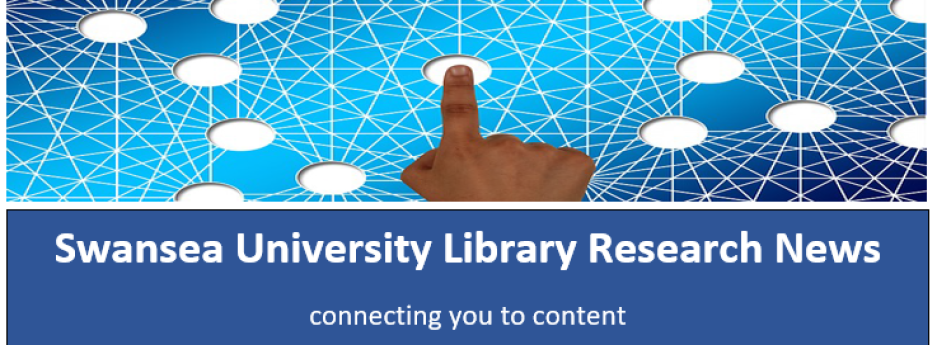Celebrating International Open Access Week 25th October
In celebrating International Open Access Week, the following highlights from the activities of researchers across the university demonstrate how we continue to embrace and advance the spirit of Open Science and Scholarship.
Jump to Faculty Open Access Activity
Open Science, Scholarship and Access are very much within Swansea University’s DNA and there are several ways that staff and students can get involved in developing and informing our activities via the following groups.
Public Engagement Forum
The Public Engagement Forum is chaired by Dr Rhian Melita Morris and meets to discuss initiatives relating to the promotion, support and embedding of public engagement at Swansea university
Please email Rhian if you are interested in becoming involved: R.M.Morris@Swansea.ac.uk
UK Reproducibility Network (Swansea University Branch)
Dr Laura Wilkinson leads the Swansea University branch of the UK Reproducibility Network (UKRN) which is a national peer-led consortium that aims to ensure the UK retains its place as a centre for world-leading research. They do this by investigating the factors that contribute to robust research, promoting training activities, and disseminating best practice. They also work collaboratively with various external stakeholders to ensure coordination of efforts across the sector.
The UKRN’s meeting schedule and ‘Top Ten Tips’ for getting started with Open Research can all be found on the UKRN Swansea University Local Branch website and you can contact them at: ukrnswansea@swansea.ac.uk
Open Scholarship Forum
Swansea University’s Open Scholarship Forum is coordinated by Alexander Roberts and the Library Research Support Team and includes researchers and administrative staff from within faculties and professional services. The forum is a place to discuss and inform the development of university policy, research support and infrastructure in relation to Open Science and Scholarship.
To participate in the forum and the discussion on Microsoft Teams please contact: a.l.roberts@swansea.ac.uk.
Please remember that the Library Research Support team should be your first call when seeking Open Access guidance and advice. The Effective Research Publishing Handbook highlights publisher open access deals and discounts for Swansea University researchers, 12 Steps to Open Research, OA FAQs and more.
Swansea University Open Research Data Community

If you are looking for a safe place to store the data underpinning your research then please upload it to the Swansea University Open Research Data Community on the Zenodo Platform. Find out more about Research Data management at Swansea by visiting https://libguides.swansea.ac.uk/research-data-support-services/rdm-home
The Swansea University Open Research Data Community – https://zenodo.org/communities/swansea-university
Highlights from recent faculty activity
Faculty of Humanities and Social Science
English & History – Open Monographs, Open Access Resources, Articles and Journal
Dylan Thomas Online Collection

The new Digital Dylan Thomas Collection was made possible by an international collaboration between the Harry Ransom Centre at The University of Texas at Austin, the Dylan Thomas Trust and Swansea University.
The digital collection of the Welsh poet and dramatist Dylan Thomas (1914–1953) contains approximately 6,000 images of manuscripts of his poetry, stories, radio broadcasts, plays, and film scripts, as well as correspondence, drawings, photographs, and some career and personal papers is now available online to researchers and the general public for the first time.
By collaborating on the creation of digital preservation facsimiles of the objects held within the Dylan Thomas collection Swansea University has enabled wider access to these important research materials, not least for residents of Swansea, Thomas’s hometown, but for the rest of the world. Researchers, students, and members of the public now no longer need to spend considerable sums on travel costs, and accommodation to study this material and can instead focus on the material rather than the journey there. The burden of the travel costs associated with visiting collections such as this has historically been a barrier to wider engagement, and likewise meant that only those able to attract significant funding have been able to complete the journey. The digitisation of this collection has now brought about a democratisation of access.
Access the online collection at: https://hrc.contentdm.oclc.org/digital/collection/p15878coll98
Disability in the Industrial Revolution
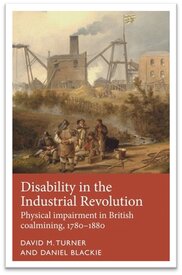
Turner, D. M., & Blackie, D. (2018). Disability in the Industrial Revolution. Manchester, England: Manchester University Press. Retrieved Oct 18, 2021, from https://www.manchesteropenhive.com/view/9781526125774/9781526125774.xml
Disability in industrial Britain
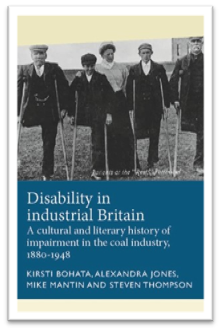
Bohata, K., Jones, A., Mantin, M., & Thompson, S. (2020). Disability in industrial Britain. Manchester, England: Manchester University Press. Retrieved Oct 18, 2021, from https://www.manchesteropenhive.com/view/9781526124326/9781526124326.xml
Journal Neo-Victorian Studies

The enterprise of the Swansea-founded OA peer reviewed journal Neo-Victorian Studies, General Editor: Dr Marie-Luise Kohlke is temporally double, staging an encounter between the Victorian and neo-Victorian, between the two periods’ aesthetic productions and material works, their discourses, ideologies, and socio-political contexts. It explores themes of modernity, alterity, and evolution through time and place in an ever more globalised and interconnected world. Two ages of literature and the arts reflect and converse with each other, the nineteenth century dreaming into the future, our own present moment reading and re-imagining the past, conjoined in an ever-changing interplay of light and shadows, visibility and obscurity, self and doubled other.
Access the journal at: http://neovictorianstudies.com/
Shakespeare, Race and Nation

Professor Kirsti Bohata has written an introduction to the special open access issue of the journal ‘Shakespeare’ on the subject of Shakespeare, Race and Nation
Read the introduction at: https://doi.org/10.1080/17450918.2021.1892815
Elizabeth Montagu Correspondence Online (EMCO)
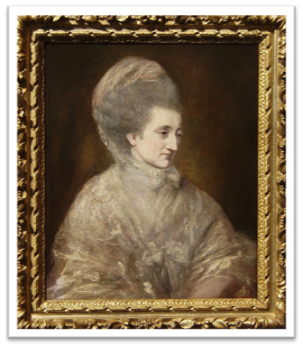
Professor Caroline Franklin from English, together with Alexander Roberts from the Digital Humanities and Research Data Team, and Oxford Brookes University has developed and hosted the world’s first Elizabeth Montagu digital edition of letters and scholarly commentary at Elizabeth Montagu Correspondence Online (EMCO).
Access the online edition at: http://emco.swansea.ac.uk
Linguistics
National Corpus of Contemporary Welsh
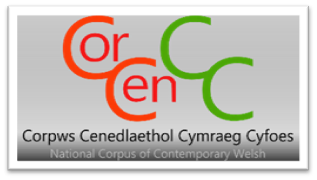
The National Corpus of Contemporary Welsh, CorCenCC, has recently been launched with major input from Swansea University researchers. This is a language resource for Welsh speakers, Welsh learners, Welsh language researchers, and indeed anyone who is interested in the Welsh language. CorCenCC is a freely accessible collection of multiple language samples, gathered from real-life communication. Click on the Explore or Download tabs to access the corpus and start to investigate Welsh language as it is actually used. The corpus is accompanied by an online teaching and learning toolkit – Y Tiwtiadur – which draws directly on the data from the corpus to provide resources for Welsh language learning at all ages and levels.
Access the Corpus at: https://corcencc.org/
Faculty of Science and Engineering
Oriel Science – Public Engagement
Oriel Science is a Swansea University public engagement project that takes research done by Swansea researchers, crafts these into interactive and visceral exhibits, and places them at the heart of the community. It welcomes members of the public and students on organised school visits. It has also run and given presentations at festivals. It is run by a small team including Swansea University researchers and is aimed at all members of the public to develop their familiarity with science, a.k.a. ‘Science Capital’ but with an emphasis on reaching underrepresented groups in the community. Published research shows that developing Science Capital is the best way to encourage Future Generations into university education.
Find out more about Oriel Science at: https://www.swansea.ac.uk/physics/research-and-impact/oriel-science-outreach/
Physics – Open Code and Open Data
Dr Ed Bennett from the Swansea Academy of Advanced Computing (SA2C) has successfully secured the first Fellowship offered by the Science & Technology Facilities Council (STFC) in Research Software Engineering. Fellowship—the only one awarded this year—competing with bids from the particle physics, nuclear physics, space science and astronomy research communities across the UK. Worth £600k, it will help drive the development of cutting-edge research software and promote the vital role of software in enabling high-quality research.
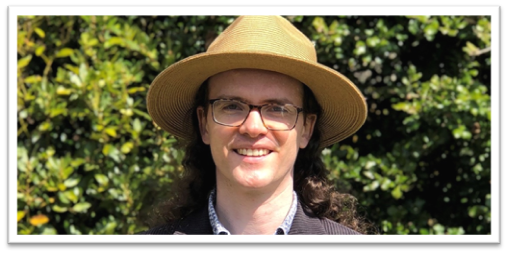
The Fellowship will support Dr Bennett in his aim to help the wider research community by improving software they use, to support and train other researchers and to conduct his own research.
Read more at: https://www.swansea.ac.uk/press-office/news-events/news/2021/04/university-software-engineer-wins-major-fellowship-award.php
Access the open data set at https://zenodo.org/record/5139618#.YWhCgRrMKUk on the Swansea University Open Research Community
Geography – Open Code, Open Data, Open Monographs and Citizen Science
Global Environmental Modelling and Earth Observation (GEMEO) group

One of Geography’s recent REF2021 impact case studies focusses on the work of Professors Peter North and Sietse Los as part of the Global Environmental Modelling and Earth Observation (GEMEO) group’s work to develop an open dataset of the earth’s reflectance. This work deals with code and datasets for improved weather forecasting and climate modelling. Open project partners included the UK Met Office, European Centre for Medium Range Weather Forecasts, European Space Agency, and suchlike.
For a flavour of the work and its impact read more at: https://www.swansea.ac.uk/geography/research-and-impact/improving-weather-prediction/
European Barrier Atlas
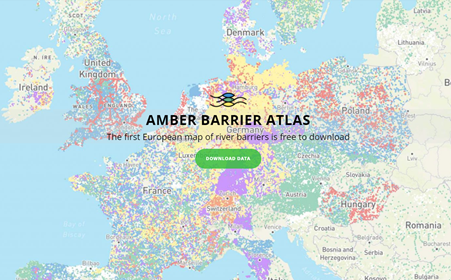
Professor Carlos Garcia De Leaniz and the AMBER project seeks to apply adaptive management to the operation of dams and other barriers to free flow in European rivers to achieve a more efficient use of water resources, one that maximises benefits and reduces impacts. With over 1 million river barriers, Europe has probably the most fragmented rivers in the world. Dams provide energy, water, fishing, and leisure opportunities to society, but also fragment rivers and can have a huge impact on biodiversity. Some barriers are obsolete and out of use and pose a flood and safety hazard and should be removed. AMBER is a consortium of 20 active partners, ranging from large hydropower businesses, river authorities, and universities. Importantly, AMBER has also a citizen science programme which encourages people to locate barriers while fishing, kayaking or walking along the riverbank using the Barrier Tracker app. Data from the app has helped to build the AMBER Barrier Atlas, which is the first comprehensive open access database of rivers barriers in Europe (Nature 588, 436-441). These results are helping local and national authorities to prioritize barriers in need of improvement or removal.
Access the project website at: https://amber.international/
Open Monographs
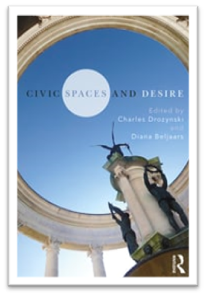
Doel, Marcus A. 2019, Civic space—and desire—deranged; From Le Corbusier to Georges Perec, Routledge
Read the open chapters at: https://www.taylorfrancis.com/chapters/oa-edit/10.4324/9781351184137-2/civic-space—and-desire—deranged-marcus-doel
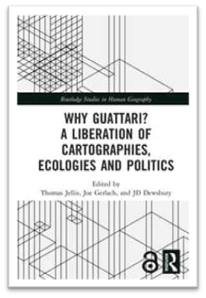
Doel, Marcus A. & David B. Clarke 2019, Through a net darkly; Spatial expression from glossematics to schizoanalysis, Routledge
Read the open chapters at: https://www.taylorfrancis.com/chapters/oa-edit/10.4324/9781315645827-3/net-darkly-marcus-doel-david-clarke?context=ubx&refId=dad3293f-fdd6-4e17-8350-377dfcac6e76
